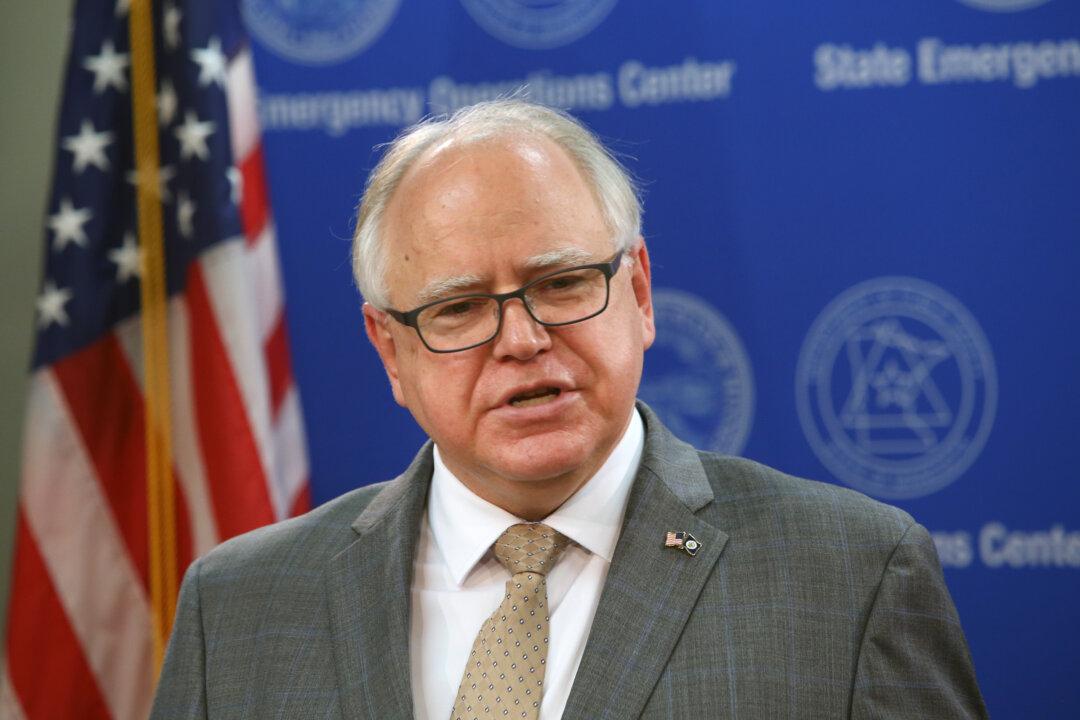Minnesota Gov. Tim Walz (D) signed a police reform bill into law on Thursday that bans the use of chokeholds, neck restraints, and halts “warrior style” training for officers.
The legislation also calls for officers to receive counseling and stress management as well as provide new police training that emphasizes crisis resolution. The additional training will focus on how officers interact with people with autism, those dealing with mental illness crises, and how they can recognize cultural differences.




